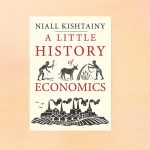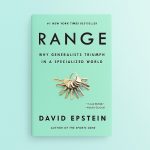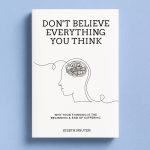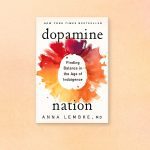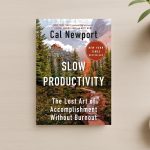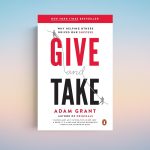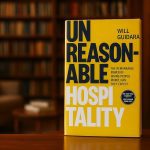In the landscape of modern self-development and spiritual literature, Don Miguel Ruiz’s The Four Agreements: A Practical Guide to Personal Freedom stands as a transformative contribution, weaving ancient Toltec wisdom into actionable guidance for navigating the complexities of contemporary life. First published in 1997, the book has become a bestseller, not only due to the simplicity and universality of its teachings but also because of its resonance with deep psychological needs for authenticity, peace, and personal sovereignty.
1. Introduction to The Four Agreements
Ruiz’s work distills millennia of indigenous Mexican philosophy into four foundational practices, agreements with oneself that, when consistently honored, promise personal freedom, happiness, and the dissolution of self-imposed suffering. The book’s appeal lies in its ability to speak across cultural, religious, and psychological boundaries. Its teachings, both spiritual and practical, offer a path for mending the pervasive wounds left by societal conditioning, family shame, and internalized narratives of limitation.
This abstract provides a deeply integrated overview of the book’s core themes, contextual history, authorial intent, chapter-by-chapter development, psychological framing, and social implications. Through this exploration, we see how The Four Agreements both challenges and uplifts the individual, offering not a belief system to be subscribed to, but a practical way to reclaim agency and joy in everyday life.
2. Author Biography and Historiographical Perspective
Miguel Angel Ruiz, known to readers as Don Miguel Ruiz, was born in 1952 in rural Mexico, the youngest son of a family rooted in the healing arts. His mother served as a curandera (a traditional healer), and his grandfather was a nagual, a Toltec shaman and teacher. Despite this rich heritage, Ruiz initially pursued a career in Western medicine, graduating from medical school and working as a surgeon. However, a near-fatal car accident served as a catalyst for his return to the spiritual wisdom of his ancestors. This experience awakened in him a deep desire to understand the nature of what he calls the “dream of reality” and the mechanisms behind both personal and collective suffering.
Ruiz’s writing is steeped in indigenous Mexican spirituality, particularly the esoteric teachings of the Toltecs, an ancient culture that flourished in central Mexico and was revered for its mastery of consciousness. In his books, Ruiz identifies himself as a nagual, entrusted with conveying the ancient wisdom to a modern audience desperately in need of healing from self-judgment, fear, and cultural domestication. His perspective both honors this lineage, affirming that Toltec wisdom is secretly universal and accessible to all people and adapts it for our era, emphasizing practical transformation over dogma.
Through his life’s work, Ruiz has become a bridge between worlds: between ancient and contemporary, oral tradition and written word, medicine and mysticism. He has offered not only The Four Agreements but also several companion books and teachings, helping millions to discover an internal path to peace, love, and freedom.
3. The Toltec Tradition and Its Modern Reinterpretation
Before entering into the substance of Ruiz’s work, it is essential to grasp the context from which it arises. The Toltecs, often mythologized as a race, tribe, or lost civilization were, according to Ruiz and other modern interpreters, a spiritual and philosophical group of “women and men of knowledge.” For the Toltec, reality was understood as a malleable dream or illusion, continuously shaped by human perception, language, and belief systems.
Toltec wisdom was passed down through naguals (masters of awareness) in secret, especially after the disruptions of Spanish conquest and the misuse of spiritual power by some practitioners. For centuries, the knowledge was guarded from unawakened and unprepared individuals, awaiting an era when humanity would once again be ready for its profound lessons. Ruiz presents himself as a bearer of this revived knowledge, transmitting it not as religion but as an open and inclusive “way of life,” welcoming all seekers who aspire to love, awareness, and happiness. Rooted in this tradition, The Four Agreements serves both as a spiritual manual and a psychological roadmap, blending mystical insight with practical guidance.
4. The Book’s Structure and Narrative Development
Ruiz organizes his book into a sequence of elegant chapters, each building logically upon the last. After an evocative introduction, the narrative unfolds through the following key movements:
- The Smokey Mirror (Introduction)
- Domestication and the Dream of the Planet
- The First Agreement: Be Impeccable with Your Word
- The Second Agreement: Don’t Take Anything Personally
- The Third Agreement: Don’t Make Assumptions
- The Fourth Agreement: Always Do Your Best
- The Toltec Path to Freedom: Breaking Old Agreements
- The New Dream: Heaven on Earth
- Prayers and reflections
Throughout, Ruiz employs anecdotes, metaphors, and direct challenges to the reader, enhancing accessibility while maintaining depth. Each chapter stands on its own yet contributes to a unified vision of transformation, inviting engagement on intellectual, emotional, and spiritual levels.
Introduction: The Smokey Mirror
The book commences with the parable of the Smokey Mirror, a story drawn from the heart of Toltec myth. In this narrative, a young man, in search of ancestral knowledge, encounters a profound revelation about the nature of existence. The stars above are recognized as points of light, but this light, he realizes, is not merely an external phenomenon; it is the very substance of all existence, including himself. The world is made of light, but this light is continually reflected upon itself, producing the illusions (or dreams) that obscure our perception of the truth.
Ruiz explains that every person is a mirror, reflecting light and thus perception; yet the “smoke” of false beliefs, interpretations, and emotional wounds acts as a barrier between us and our true, divine selves. The “smoke” is the product of what he will later call “domestication”, the process by which human beings learn to see themselves not as they truly are, but through the conditioned judgments imposed upon them by family, society, and culture.
Through this parable, Ruiz establishes the foundational tension of the book: the difference between our essential nature, unbounded awareness and love and the limitations created by unconscious agreements. The journey ahead, he suggests, is not about adding new beliefs but removing the smoke that veils our vision, so we may recognize our own divinity and the unity of all things.
Domestication and the Dream of the Planet
Central to Ruiz’s psychological framework is the concept of “domestication.” Just as animals are trained to conform to human desires through a system of punishment and reward, human beings are molded from birth by parents, schools, religious authorities, and mass culture. This process is not inherently malicious, but over time it produces a pervasive sense of unworthiness, internalized judgment, and alienation from the authentic self.
Ruiz asserts that from birth, individuals are taught a continuous stream of rules and roles. We do not choose the language we speak, the name we are called by, or the beliefs that structure our early existence, they are simply given to us. Every concept of good and evil, beauty and ugliness, ability and limitation is inherited before it is examined, and is accepted not through conscious consent but through agreement. To agree, in this context, is to internalize to make external narratives one’s own unquestioned reality.
This domestication brings with it not only knowledge and socialization but also a system of persistent self-abuse. Children are rewarded for compliance and punished for dissent, gradually learning to monitor and control their own behavior in pursuit of acceptance and love. Over time, we internalize the voices of authority, creating what Ruiz names the Judge and the Victim. The Judge is the ever-watchful part of the psyche, dispensing verdicts, punishment, and shame, while the Victim is the part that suffers, feeling guilt and powerless to escape self-reproach.
Out of these dynamics emerges a personal Book of Law a script of rules and beliefs by which we judge ourselves, others, and the world. This Book of Law is seldom scrutinized; rather, it shapes perception, feeling, and action on an almost unconscious level. Notably, Ruiz observes that most of these internal agreements are untruths subjective stories or outright lies about our worth, capability, and place in the world.
The consequences are devastating. Human beings become their own jailers, perpetually punishing themselves for perceived inadequacies or transgressions. Forgiveness becomes impossible; mistakes are paid for thousands of times, in memory and imagination. The cycle of self-judgment, blame, and emotional poison proliferates, infecting relationships, communities, and cultures. As this pain becomes normalized, individuals come to see emotional suffering as the natural state of life, mistaking the domesticated dream for reality.
Yet Ruiz insists that this suffering is not inevitable; it is the result of agreements, and agreements can be changed. The rest of the book offers a map for how to break free from the old dream and rekindle the original freedom and happiness that are our birthright.
The Four Agreements: Pathways to Freedom
Ruiz’s path to liberation is, at its core, astonishingly straightforward. He invites readers to replace the unconscious, inherited agreements that perpetuate suffering with four consciously chosen, life-affirming agreements. Each functions as both a principle and a practice, offering practical strategies for transforming perception and behavior.
The First Agreement: Be Impeccable with Your Word
The first and most consequential agreement is to be impeccable with one’s word. Ruiz elevates speech, internal and external to the status of a primary creative force. In his telling, words are not merely communicative but generative: they shape reality for oneself and others. Echoing ancient and religious texts (“In the beginning was the Word…”), Ruiz stresses that words are imbued with both constructive and destructive power.
Impeccability, a term whose roots mean “without sin,” signifies a way of using language that neither harms oneself nor others. To be impeccable with one’s word is to refuse gossip, lies, self-criticism, and idle negativity. Critically, Ruiz expands “sin” from a moral offense to any action or word that betrays one’s own truth or self-respect. Incantations against oneself, “I am stupid,” “I am unworthy” are as damaging, he argues, as spoken curses against others.
Ruiz illustrates the lasting wounds of careless speech through vivid anecdotes: the child labeled “ugly” who grows into an adult haunted by this belief; the power of encouragement or condemnation to shape destiny. He contends that by speaking with integrity and choosing words of love over fear, one can undo centuries of wounding passed down through the chain of human relationships.
In daily practice, this means guarding both one’s outward speech and internal dialogue, cultivating awareness of habitual patterns, and striving to speak truth that nourishes and heals. Impeccability brings liberation from self-abuse and transforms one’s impact on the world, setting the foundation for all subsequent change.
The Second Agreement: Don’t Take Anything Personally
The second agreement offers a radical reframing of interpersonal conflict and emotional pain. Ruiz asserts that nothing others do is truly because of us; rather, all people act through the lens of their own beliefs, wounds, and scripts. By refusing to take praise or criticism personally, one gains immunity to external emotional poison and manipulation.
This agreement dissolves the tyranny of others’ opinions and expectations. Ruiz explains how, by internalizing the actions and judgments of others, we unwittingly allow their drama to dictate our mood, identity, and self-worth. In truth, he argues, their conduct reflects their own personal dream, their internal landscape of fear, insecurity, and judgment.
Taking nothing personally does not absolve responsibility for one’s own actions, but it does strip away the illusion that we are at the mercy of others’ approval or rejection. It grants emotional independence, the ability to feel and act in alignment with one’s own truth rather than in reaction to others.
Practicing this agreement involves mindfulness, self-reflection, and courage. It is a continual process of disentangling oneself from the drama of others and honoring the boundary between their reality and one’s own. The result is newfound peace, clarity, and self-possession.
The Third Agreement: Don’t Make Assumptions
The third agreement addresses the universal human tendency to interpret others’ actions, motives, and feelings without direct knowledge. Ruiz argues passionately that assumptions are the root of most conflict and disappointment. Rather than clarifying with questions and direct dialogue, we often project our fears, desires, and beliefs onto others, generating miscommunication, resentment, and needless pain.
Assumptions flourish in silence. When needs are unspoken or misunderstandings are allowed to fester, relationships deteriorate, and wounds deepen. Ruiz demonstrates through relatable stories how even the strongest bonds can fray under the weight of unspoken grievances and unaddressed expectations.
To break the pattern of assumption, Ruiz prescribes clarity through inquiry. Asking questions, expressing one’s feelings honestly, and requesting clarification are acts of respect and vulnerability, not weakness. The courage to communicate directly bonds people together in trust and transparency, reducing fear and amplifying intimacy.
This agreement also requires self-examination: challenging the beliefs and habitual scripts behind our assumptions, acknowledging the limits of our knowledge, and opening ourselves to new perspectives. By practicing directness instead of presumption, we recover agency and depth in all our relationships.
The Fourth Agreement: Always Do Your Best
The fourth agreement integrates and animates the previous three. Ruiz reminds us that perfection is an illusion, and life’s circumstances are in constant flux. The only reasonable, loving standard is to always do one’s best, no more, and no less. Doing one’s best is not a static ideal, but a dynamic practice. It changes from day to day, affected by health, mood, fatigue, or circumstance.
Embracing this agreement prevents the self-punishment that often follows well-intentioned failure. Ruiz insists that when we do our best out of love and sincerity, we avoid regret, guilt, and the self-loathing perpetuated by unrealistic standards. This agreement is, in essence, an invitation to live wholeheartedly to be present, to give our full effort, and to forgive ourselves for being human.
In Ruiz’s schema, when we do our best with the other three agreements, we reinforce them as habits rather than fleeting experiments. Our best becomes a force for transformation, gradually replacing the old agreements of fear and inadequacy with a new foundation of acceptance and joy.
Breaking Old Agreements: The Toltec Path to Freedom
Having outlined the four new agreements, Ruiz addresses the challenge of rooting out the deeply embedded beliefs and agreements of the past. Change is not immediate; the domesticated self resists transformation, clinging to the scripts and habits it has known for a lifetime.
Ruiz describes this process as a battle with an internal parasite, an unwholesome force fed by fear, self-doubt, and repetition. To become free, one must first become aware of the parasite’s presence, observe its influence without judgment, and choose new agreements repeatedly, with patience and compassion. He likens this journey to that of the Toltec “warrior,” who pursues truth, love, and awareness with discipline and courage.
Forgiveness is central to breaking old agreements. Ruiz implores readers to forgive themselves and others for acting out of ignorance, fear, or domestication. By doing so, we reclaim the personal power previously siphoned off by emotional wounds and unexamined narratives.
Ruiz borrows the concept of the “mitote” from Toltec tradition to describe the mind’s state of confusion, the internal cacophony of beliefs, doubts, and judgments. To break free, he suggests, one must clear the mitote, bringing the mind to stillness and clarity. Only then can old agreements be replaced with the new, and personal power restored.
The New Dream: Creating Heaven on Earth
The practical work of the four agreements and the breaking of old patterns culminates in what Ruiz calls “The New Dream.” He envisions a world where each person, empowered and awakened to their true nature, lives in love rather than fear. This new dream is not utopian, but attainable; it begins with each individual who chooses freedom over domestication, truth over illusion.
Humanity, Ruiz declares, is collectively searching for truth, justice, and beauty, yet remains blinded by the fog of false beliefs and self-rejection. The four agreements clear this fog, allowing us to see ourselves and others through the eyes of love, acceptance, and possibility. Heaven and hell, he suggests, are not places but states of mind; we have the power, through our agreements, to create paradise or suffering in any moment.
Prayers and reflections
The book ends with prayers and affirmations, inviting readers to ask the divine (as they understand it) for help in remembering, forgiving, and loving beyond the limitations of the dream. Ruiz’s closing vision is one of radical hope: with the right agreements, a world of happiness, understanding, and peace is within reach, for the individual and for all.
5. Themes, Impacts, and Implications
The Four Agreements is more than a set of abstract ideas; it is a practical, everyday philosophy with profound psychological and social implications.
At its heart, the book is a sustained argument for personal responsibility. Ruiz teaches that we are not passive victims of fate, culture, or authority. Through awareness and choice, anyone can begin to dismantle inherited scripts, rewrite the Book of Law, and reclaim the power once given away. This perspective resonates deeply with contemporary psychological approaches such as Cognitive Behavioral Therapy (CBT), which similarly focus on the power of reframing beliefs and language to shift emotional experience.
The book underscores the creative power of language and narrative. Words, in Ruiz’s framing, are magical tools, capable of binding or liberating, wounding or healing. This insight aligns with research in positive psychology, mindfulness, and trauma recovery, which increasingly emphasize the role of self-talk, inner narrative, and communication in shaping mental health and resilience.
The social implications are equally potent. By teaching not to take things personally or make assumptions, Ruiz offers tools for de-escalating conflict, promoting empathy, and building trust. The agreements form the foundation not only for individual transformation but for communities grounded in understanding, compassion, and transparency.
Perhaps most radical is Ruiz’s vision of forgiveness and unconditional love. He maintains that self-abuse, the original and greatest wound spawns all other forms of harm, and only by healing oneself can one contribute fully to the healing of others. This is not mere self-help rhetoric, but a worldview with transformative, if challenging, implications for how we live, parent, teach, and govern.
6. Reception, Influence, and Legacy
Since its publication, The Four Agreements has reached millions of readers and has been translated into dozens of languages. It has spent years on bestseller lists, been endorsed by spiritual leaders and celebrities (including Oprah Winfrey), and become an essential text in self-help, coaching, and organizational leadership.
For many, the book represents a turning point, a moment when the possibility of living differently, more consciously and more lovingly, becomes real. It is frequently cited as life-changing, especially by those seeking to heal from toxic family dynamics, negative self-image, or burnout.
However, the book is not without its critics. Some argue that its style is overly simplistic, or that it underestimates the significance of systemic or traumatic factors, focusing too narrowly on individual agency. However, many therapists, psychologists, and educators have found its insights adaptable to various contexts, and its popularity continues in both popular and professional domains.
What makes the book enduring is its balance of simplicity and depth, accessibility and profundity. In a noisy, complicated world, The Four Agreements cuts to the root of suffering and offers a way out, not through external conquest, but via inner clarity, courage, and love.
7. Comparative and Scholarly Perspective
The universal appeal of The Four Agreements lies, in part, in its resonance with major traditions of personal and spiritual development. Ruiz’s focus on awareness, intention, and self-liberation mirrors Buddhist concepts of mindfulness and non-attachment, Stoic calls for clarity and self-mastery, and the narrative resilience offered by contemporary psychology.
In academic circles, the book has sparked discussion for its blending of psychotherapy and indigenous spirituality, and its use in cross-cultural contexts. Some scholars point out its integration with narrative therapy, its utility in mindfulness-based interventions, and its role in popularizing indigenous spiritual ideas in the West (sometimes drawing criticism for oversimplification or new-age commercialization, but also praise for accessibility).
For professionals in psychology, education, and leadership, the book is often recommended not for its metaphysics but for its language: the agreements become a shorthand for essential principles of healthy functioning, relationship, and community.
8. Conclusion
Don Miguel Ruiz’s The Four Agreements: A Practical Guide to Personal Freedom is a rare book, one that bridges philosophy and daily action, myth and modernity, personal and collective healing. Rooted in Toltec wisdom and shaped by the realities of contemporary psychology, the book invites readers on a journey away from fear, judgment, and unconscious suffering, and toward awareness, responsibility, and love.
This journey is not about accepting a new dogma, but about questioning every belief and agreement that stands between oneself and joy. The four agreements, be impeccable with your word, don’t take anything personally, don’t make assumptions, always do your best are deceptively simple, yet inexhaustibly deep. Practiced over a lifetime, they have the potential not just to improve individual lives but to reshape families, organizations, and even whole societies.
In a world where suffering is too often normalized, The Four Agreements remains a vital call to awaken, to choose love over fear, and to reclaim the possibility of a new dream, for oneself and for all humanity.
If you found this review helpful, please share it or leave a comment below!







